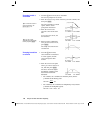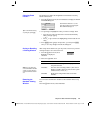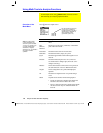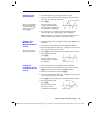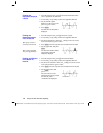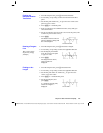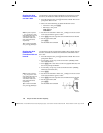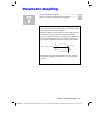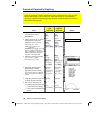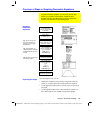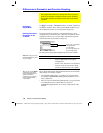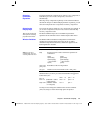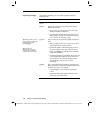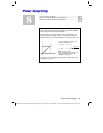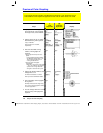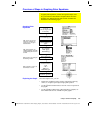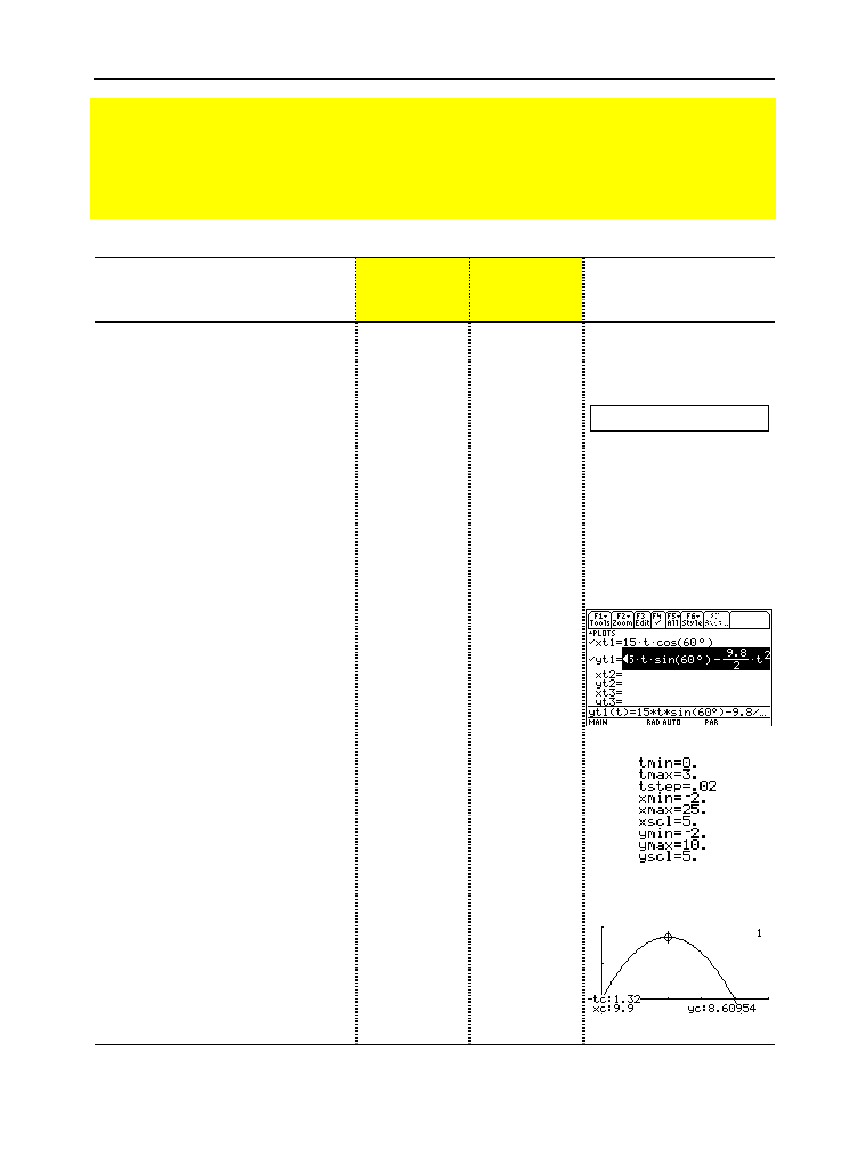
128 Chapter 7: Parametric Graphing
07PARAM.DOC TI-89/TI-92 Plus: Parametric Graphing (English) Susan Gullord Revised: 02/23/01 10:56 AM Printed: 02/23/01 2:13 PM Page 128 of 6
Steps
³
TI-89
Keystrokes
›
TI-92 Plus
Keystrokes Display
1. Display the
MODE
dialog box.
For
Graph
mode, select
PARAMETRIC
.
3
B
2
¸
3
B
2
¸
2. Display and clear the Y= Editor.
Then define the horizontal
component
xt1(t) = v
0
t cos
q
.
Enter values for v
0
and
q
.
TI-89:
T
ype
T
p2X
, not
T 2X
.
TI-92 Plus:
Type
T
p
X
, not
T
X
.
Enter a
¡
symbol by typing either
2“
or
2I 2 1
. This ensures a
number is interpreted as degrees,
regardless of the angle mode.
¥#
ƒ
8
¸
¸
15T
p
2X
60
2“d¸
¥#
ƒ
8
¸
¸
15T
p
X
60
2“d¸
xt1(t)=15t
ù
cos(60¡)
3. Define the vertical component
yt1(t) = v
0
t sin
q
– (g/2)t
2
.
Enter values for v
0
,
q
, and g.
¸
15T
p
2W
60
2“d|c
9.8
e
2
d
T
Z
2
¸
¸
15T
p
W
60
2“d|c
9.8
e
2
d
T
Z
2
¸
4. Display the Window Editor.
Enter Window variables
appropriate for this example.
You can press either
D
or
¸
to
enter a value and move to the next
variable.
¥$
0
D
3
D
.02
D·
2
D
25
D
5
D
·
2
D
10
D
5
¥$
0
D
3
D
.02
D·
2
D
25
D
5
D
·
2
D
10
D
5
5. Graph the parametric equations
to model the path of the ball.
¥%
¥%
6. Select
Trace
. Then move the
cursor along the path to find the:
¦
y
value at maximum height.
¦
t
value where the ball hits the
ground.
…
B
or
A
as necessary
…
B
or
A
as necessary
Preview of Parametric Graphing
Graph the parametric equations describing the path of a ball kicked at an angle (
q
) of 60
¡
with an initial velocity (v
0
) of 15 meters/sec. The gravity constant g = 9.8 meters/sec
2
.
Ignoring air resistance and other drag forces, what is the maximum height of the ball and
when does it hit the ground?



